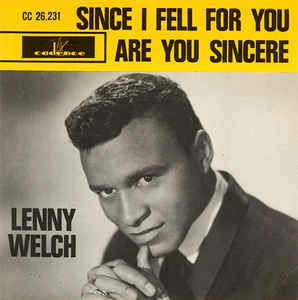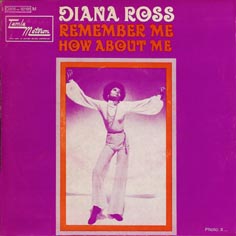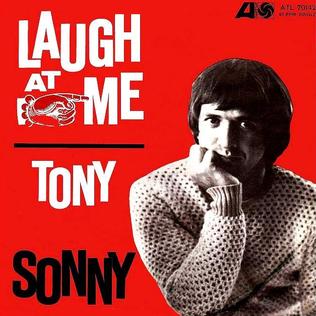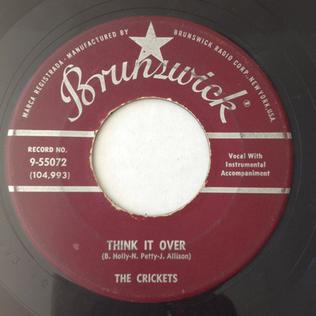"The Wonder of You" is a song written by Baker Knight. It was originally recorded by Vince Edwards in 1958, but this recording has never been released. In an interview with a DJ from Chattanooga, Tennessee, Ray Peterson told the story of how Baker Knight confided that "The Wonder of You" was originally written as a gospel song.
"More" is a popular song with music by Alex Alstone and lyrics by Tom Glazer, published in 1956. The best-known version of the song was recorded by Perry Como on May 8, 1956, alongside, Mitchell Ayres and His Orchestra and The Ray Charles Singers.
"Alone (Why Must I Be Alone)" is a popular song written by Morty Craft with lyrics written by Craft's wife, Selma..

"Honey Chile" is a 1967 single by Motown girl group Martha Reeves and the Vandellas on the Gordy label. Produced by Richard Morris and written by Morris and Sylvia Moy, This was the first single to bill Martha Reeves by her full name, as opposed to simply "Martha" and the Vandellas.

"Don't Let Me Be Misunderstood" is a song written by Bennie Benjamin, Horace Ott and Sol Marcus for American singer-songwriter and pianist Nina Simone, who recorded the first version in 1964. "Don't Let Me Be Misunderstood" has been covered by many artists. Two of the covers were transatlantic hits, the first in 1965 by the Animals, which was a blues rock version; and in 1977 by the disco group Santa Esmeralda, which was a four-on-the-floor rearrangement. A 1986 cover by new wave musician Elvis Costello found success in Britain and Ireland.

"Since I Fell for You" is a blues ballad composed by Buddy Johnson in 1945 that was first popularized by his sister, Ella Johnson, with Buddy Johnson and His Orchestra.
"Love Me with All Your Heart" is a popular song, based on the Spanish language song "Cuando calienta el sol", originally composed as "Cuando Calienta El Sol En Masachapa". The music was written by Rafael Gastón Pérez, a Nicaraguan songwriter and bandleader. SADAIC also credits the Argentine composer, Carlos Albert Martinoli.

"Tell It to the Rain" is a song composed by Mike Petrillo and Chubby Cifelli and popularized by The Four Seasons in 1966 and early 1967. The single reached the #10 position on the Billboard Hot 100 singles chart.

"Remember Me" is a 1970 single recorded and released by singer Diana Ross on the Motown label and was included on her 1971 album Surrender. The song was released as the album's first single on December 8, 1970 by the label. It was written and produced by Ashford & Simpson. In the US, the song was Ross' third top forty pop hit within a year, peaking at number 16 on the Hot 100 chart and number 10 on the soul chart. It was also Diana Ross' third entry on the Easy Listening chart, where it went to number 20. It gave Diana her third gold single in a year and her third top 10 charting single in Cash Box, peaking at number eight. Overseas, "Remember Me" reached the top ten in the UK, where it reached number seven. It was the lead single from Ross' 1971 album, Surrender.
"Monterey" is a 1967 song by Eric Burdon & The Animals. The music and lyrics were composed by the group's members, Eric Burdon, John Weider, Vic Briggs, Danny McCulloch, and Barry Jenkins. The song provides an oral account of the June 1967 Monterey Pop Festival, at which the Animals performed. Burdon namedrops several of the acts who performed at the festival such as the Byrds, Jefferson Airplane, the Who, the Grateful Dead, and Jimi Hendrix. In 1968, two different video clips of the song were aired.
"It's Ecstasy When You Lay Down Next to Me" is a hit song by American singer Barry White. The song was written by Ekundayo Paris and Nelson Pigford, and arranged by Barry White.
"I Guess I'll Always Love You" is a 1966 single by The Isley Brothers, released on Motown's Tamla label, and is a Holland–Dozier–Holland composition. In the US, the single made both the Hot 100, and R&B singles chart.
"They Can't Take Away Our Music" is a song performed by Eric Burdon & War featuring Sharone Scott & The Beautiful New Born Children. It was released as a single in 1970. This was their last single before they split in the same year.
"I'll Be There" is a song written and originally recorded by Bobby Darin in 1960. It was first released as B-side to his single "Bill Bailey". As such it entered the Billboard charts on July 11, 1960, and reached position 79.

"Laugh at Me" was Sonny Bono's only hit song as a solo artist under the name Sonny. The song was written and produced by Bono.
"Music to Watch Girls By" was the first Top 40 hit by Bob Crewe using his own name, recorded by his group The Bob Crewe Generation. The music was composed by Sidney "Sid" Ramin.
"Lady" is a song with lyrics by Larry Kusik and Charles Singleton and music by Bert Kaempfert and Herbert Rehbein.

"Think It Over" is a rock-and-roll song written by Buddy Holly, Jerry Allison, and Norman Petty in 1958, originally recorded by the Crickets. Vi Petty, Norman Petty's wife, played piano on this recording.

"Take Me in Your Arms and Love Me" is a song and single by American group, Gladys Knight & the Pips written by Barrett Strong, Cornelius Grant and Rodger Penzabene. It was produced by Norman Whitfield.

"Cuba" is a 1978 song by French musical group Gibson Brothers, released as the first single from their fourth album of the same name (1979). It was the group's first charting single: In the US, "Cuba", went to #81 on the US Billboard Hot 100, and #9 on the Billboard Dance chart. Outside the US, upon its original release, it reached number one in Finland, and was a top 30 hit in Belgium, the Netherlands and West Germany. It also peaked at number 41 in the UK, however, following the success of their follow-up top 10 hit songs "Ooh, What a Life" and "Que Sera Mi Vida ", it was re-released in 1980 as a double A side single with album track "Better Do It Salsa", reaching number 12 in the UK. However, its chart performance did not improve in the US due in large part to the anti Disco Backlash in the States at the time.






